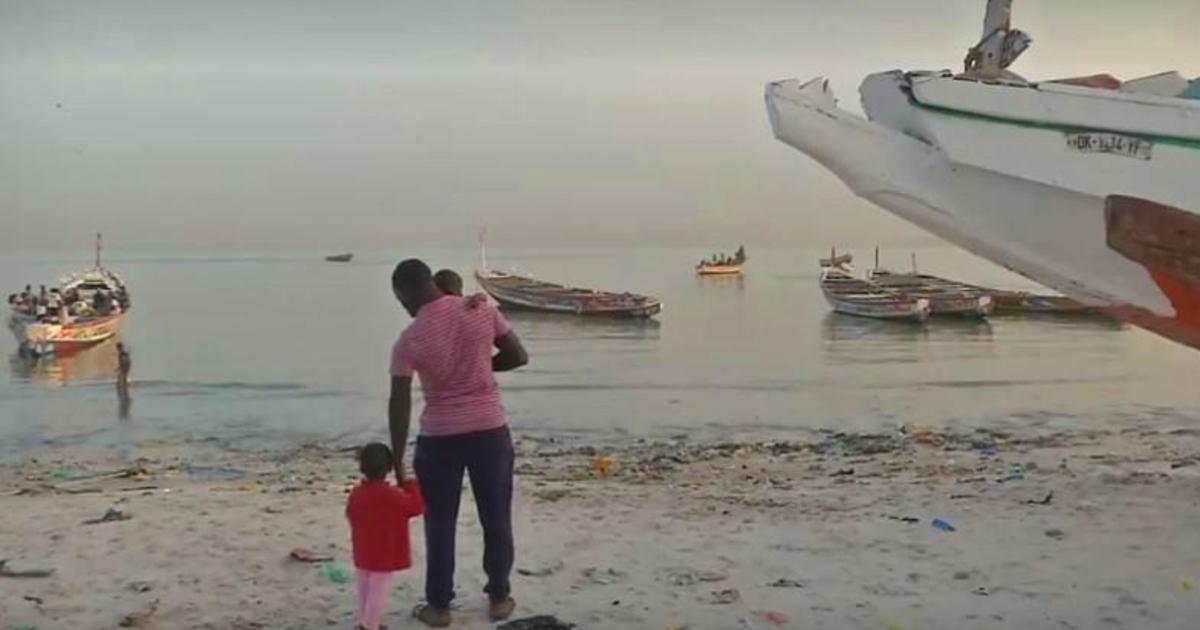/ CBS/AP
Dakar, Senegal — A United Nations official said Thursday that 58 people drowned off the coast of Mauritania in one of the deadliest disasters this year among people trying to make the perilous journey to Europe. Scores more migrants were able to swim through the rough Atlantic Ocean waters to safety from the capsized boat.
The boat that left Gambia on November 27 had been carrying at least 150 people, including women and children. It was headed toward the Canary Islands when it tried to approach the Mauritanian coast to get fuel and food, Laura Lungarotti, chief of mission in the West African nation with the U.N. migration agency, told The Associated Press.
"Many drowned. The ones who survived swam up to the Mauritanian coast close to the city of Nouadhibou," she said. "The Mauritanian authorities are very efficiently coordinating the response with the agencies currently present" in the northern city.
UPDATE: 58 drowned yesterday close to the Mauritanian shores. Mauritanian authorities, IOM and HCR working to assist the survivors, while Gambian consular authorities also present to extend protection to their nationals. https://t.co/UNDqyRDVsG
— laura lungarotti (@llungarotti) December 5, 2019
At least 83 people swam to shore, the agency said. An unknown number of injured were taken to the hospital in Nouadhibou. It was not immediately clear whether anyone remained missing.
There was no immediate statement from authorities in Gambia, where tens of thousands of people have set off in hopes of reaching Europe in recent years. Despite the country's small size, more than 35,000 Gambians arrived in Europe between 2014 and 2018, according to the U.N. migration agency.

A 22-year oppressive rule by former President Yahya Jammeh severely affected the country's economy, especially for youth, and contributed greatly to the exodus. Since Jammeh fled into exile in January 2017 after a surprise election loss, European countries have been pushing to return asylum seekers.
But Gambia's economy still suffers. The coastal nation was shaken earlier this year by the collapse of British travel company Thomas Cook. At the time, Gambia's tourism minister said the government convened an emergency meeting on the collapse, while some Gambians said the shutdown could have a devastating impact on tourism, which contributes more than 30% of the country's GDP.

Over the last couple years, as European Union nations have spent millions of dollars cutting off land routes through North Africa for migrants to try and make the shorter sea crossing to Italy or Greece, thousands of migrants have tried to reach the Canaries, a chain of Spanish islands off the Moroccan coast. It is considered a launchpad for migrants seeking asylum in mainland Europe.
